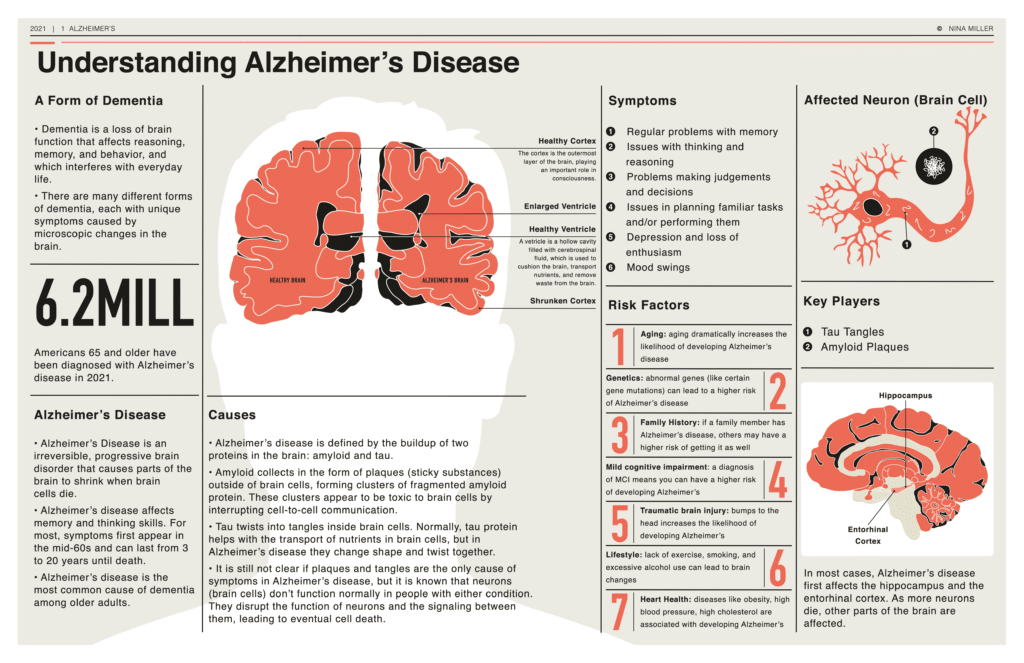Alzheimer’s disease (AD) is the most common cause of dementia. AD is an irreversible, progressive brain disorder that slowly impairs memory and thinking skills. For most people, the first symptoms of AD are memory changes, but some people may first notice changes in their language, mood, or thinking. In most people with Alzheimer’s, symptoms first appear in their mid-60s.
People with AD gradually need more help from others to complete their daily tasks. Early on, they may need help paying their bills, taking their medications, or remembering appointments. Late in the disease, people may need help with bathing and eating.
A person with AD can live many years with the disease. Research suggests that a person with AD may live from seven to fifteen years after a diagnosis, but this estimate varies from person to person.
What causes Alzheimer’s Disease?
The disease is named after Dr. Alois Alzheimer. In 1906, Dr. Alzheimer noticed changes in the brain tissue of a woman who had died of an unusual mental illness. Her symptoms included memory loss, language problems, and unpredictable behavior. After she died, he examined her brain and found many abnormal clumps (now called amyloid plaques) and tangled bundles of fibers (now called neurofibrillary, or tau, tangles).
These amyloid plaques and tau tangles in the brain are still considered some of the main features of Alzheimer’s disease. Another feature is the loss of connections between nerve cells (neurons) in the brain. This make it impossible to transmit messages between different parts of the brain and from the brain to muscles and organs in the body. As these proteins build-up, and the cells eventually die, parts of the brain to shrink (also called atrophy). While these brain changes are thought to be associated with AD, the cause of AD is still unknown. All people have amyloid and tau in their brain, but we do not understand yet why these proteins build-up in large amounts for some people.
What treatment is available?
Although treatment can help manage symptoms in some people, currently there is no cure for this devastating disease. Learn more about medications prescribed for memory from the Alzheimer’s Association. Beyond memory medications, many people with AD may benefit from medications to help with anxiety or depression, should they experience mood changes.
Beyond medications, it’s important to stay mentally, socially, and physically active to help with cognition. Learn more about ways to optimize your brain health from AARP’s Global Council on Brain Health. Research has shown physical exercise, a heart-healthy diet, limiting alcohol intake, getting good sleep, mood management, and staying socially and mentally active optimize brain health.
Resources
- Alzheimer’s Association
- Alzheimer’s Disease Education and Referral Center (ADEAR)
- Now what? Next Steps after an Alzheimer’s Diagnosis
- UCSF Managing Behavior and Personality Changes
- National Institute on Aging AD Fact Sheet
- National Institute on Aging Understanding Alzheimer’s Disease
- Home Safety Checklist
- Tips for Living Day to Day
- Alzheimer’s disease and dementia statistics and facts
